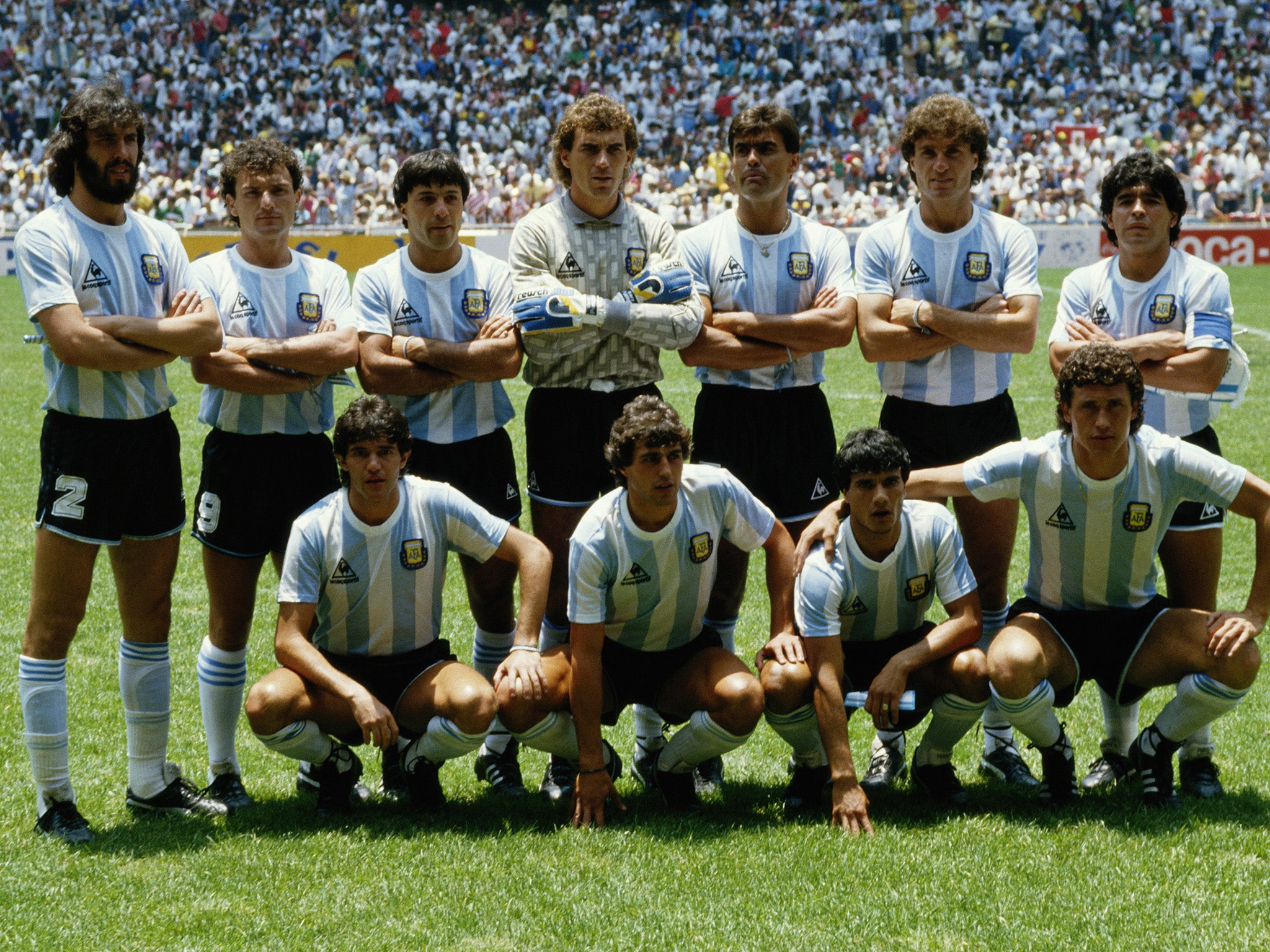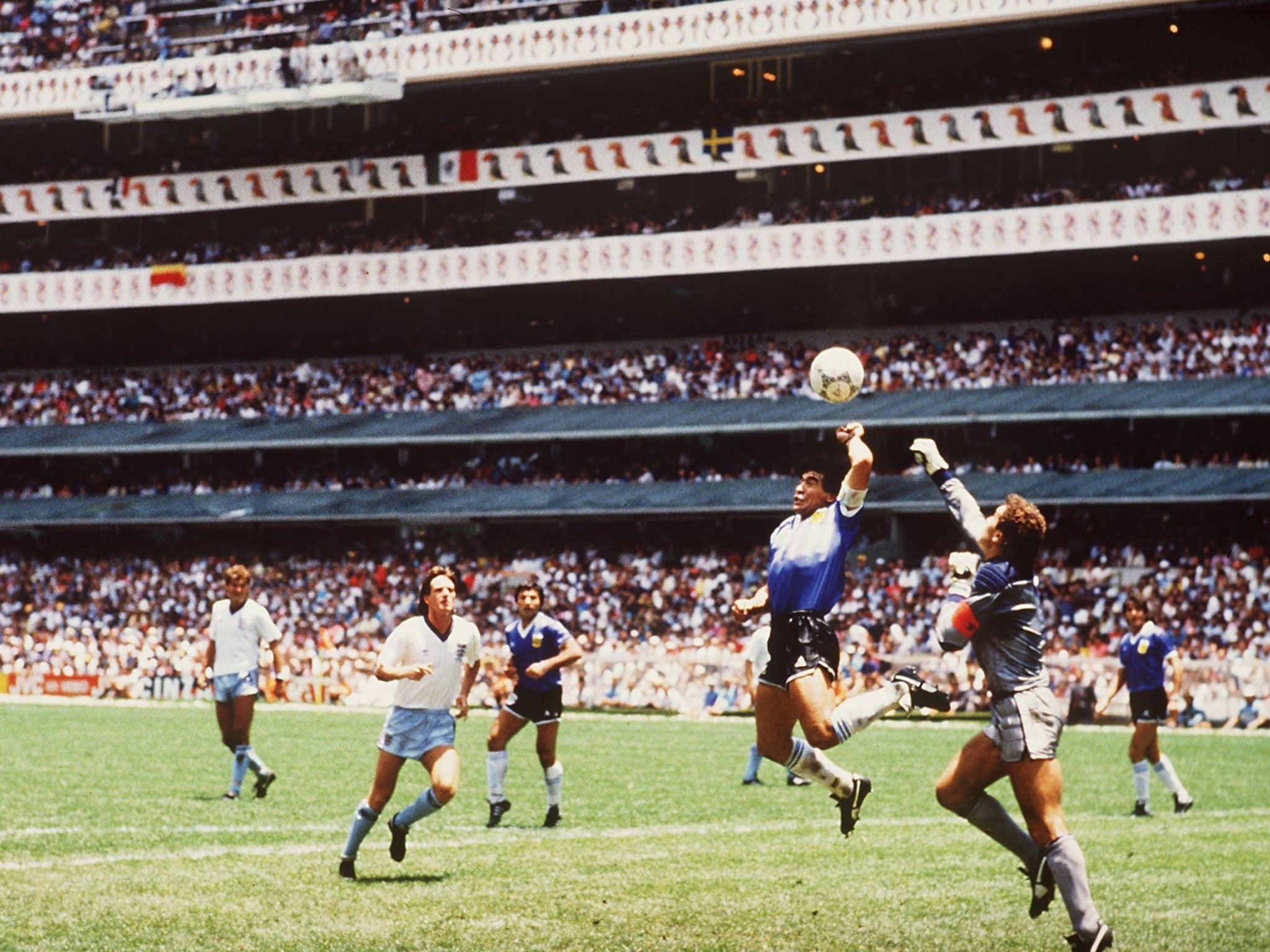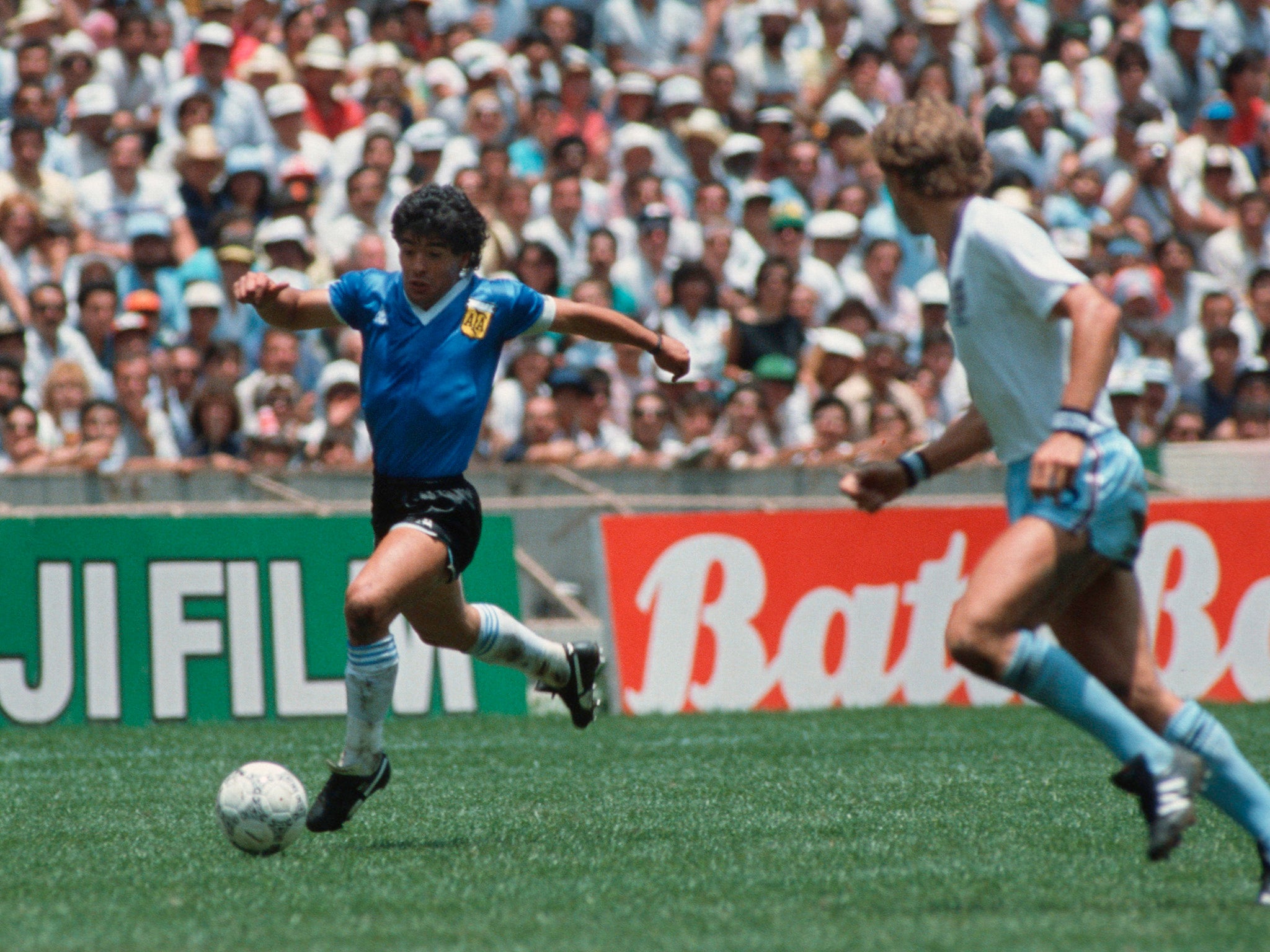World Cup 2018: Breaking down what Argentina must do to triumph in Russia, by Julio Olarticoechea
Exclusive interview: Speaking to The Independent, the former defender looks back on the intricacies of Argentina's 1986 World Cup campaign

Your support helps us to tell the story
From reproductive rights to climate change to Big Tech, The Independent is on the ground when the story is developing. Whether it's investigating the financials of Elon Musk's pro-Trump PAC or producing our latest documentary, 'The A Word', which shines a light on the American women fighting for reproductive rights, we know how important it is to parse out the facts from the messaging.
At such a critical moment in US history, we need reporters on the ground. Your donation allows us to keep sending journalists to speak to both sides of the story.
The Independent is trusted by Americans across the entire political spectrum. And unlike many other quality news outlets, we choose not to lock Americans out of our reporting and analysis with paywalls. We believe quality journalism should be available to everyone, paid for by those who can afford it.
Your support makes all the difference.Even now, after 32 years of watching it from as many angles as possible, it’s still almost impossible to figure out how he physically did it. It’s one of the most famous and spectacular moments from one of the most famous matches of all time – but it’s not the one people think of. It is instead the moment that secured the legacy of the Hand of God and Diego Maradona’s second goal against England, and thus secured Argentina’s place in the last four of the 1986 World Cup.
It was in the 88th minute, with the score at 2-1, when Julio Olarticoechea, positioned virtually on the headline, somehow got himself underneath both Gary Lineker and the ball to head John Barnes’ cross away. The very physics of it still don’t seem possible, but it happened. Olarticoechea himself still can’t explain how, jokingly pointing to the same divine intervention that oversaw Maradona’s first goal.
“It’s said Maradona’s first was El Mano de Dios, well I’ve always joked this was La Nuca de Dios – the Nape of God,” Olarticoechea tells The Independent, laughing as he does so. “I hit it with the back of my neck. It was an incredible moment. Incredible.”
That moment wasn’t the only distinguishing element of Olarticoechea’s World Cup, or the only time he helped secure the trophy itself and Maradona’s elevated place in the game’s pantheon. His exact role is actually something that will greatly resonate today, and for the current Argentina side too.
In a football world where wing-backs once again reign, Olarticoechea was among the first, a pioneer, playing a role that had never really been envisaged before. Argentina manager Carlos Bilardo effectively invented the position when trying to come up with a system that would maximise the influence of Maradona. He succeeded, and so much stemmed from that, right up to the intensely involving nature of perhaps the most epic World Cup game of all: that quarter-final in the Azteca.
The manner of Argentina’s 1986 victory is not just one of football history’s great stories, but also so instructive for any World Cup team. It was a classic case of a team coming together mid-tournament, finding themselves as they grew into it.
Olarticoechea explains that, despite Bilardo working on his tactics in secret for three years before Mexico 1986, the doubts around the team were anything but secret in the three weeks before the World Cup. It’s why so much of the talk before a tournament can mean so little. World Cup campaigns take on a life of their own.
“Bilardo started preparing for this as early as 1983,” Olarticoechea explains. “We did go with a lot of doubts, though, because the team just didn’t work. There was a lot of discussion in the press, a lot of debate. Then something began to click when we got to Mexico. Within a few games, we’d found ourselves, we got more confidence and the squad began to show its potential.”
An obvious question is how difficult it was to play a role for which there was no obvious examples, for which there were no precedents.

“No, no, it wasn’t difficult,” Olarticoechea says. “You know why? Because at Racing I had been a volante, down the right. Number eight. I also played left-back and right-back, both sides.
“There was a little bit of coincidence, too. Because, in the game before England, [Oscar] Garre got sent off. I went in to that position, and Bilardo gave me the opportunity to get forward, to get crosses in.”
Then came a crossroads in history: 22 June 1986, midday Mexico City time.
As momentous as that match became, it actually started very slowly in the afternoon heat. It wasn’t until Olarticoechea got the ball on the left in the 50th minute and started to run up the wing that things started to really pick up.
“If you look at that move, it’s me on the wing,” the now 59-year-old says. “I play it to Maradona, he goes on his run, and I make a decoy like a number nine in the box. It was a run I used to love.

“The next play, he scores with his hand – the Hand of God! I was close, within 10 metres of him, and I didn’t realise he’d scored with his hand. I didn’t see it.”
Like everyone else on the planet – including the England defenders – Olarticoechea watched in awe for the next goal, which came just four minutes later. Maradona made everyone a spectator in his true moment of ascension, his true piece of divine inspiration. Unlike many, though, Olarticoechea could believe what he was seeing.
“Of course I could. With Diego, anything was possible. He did these things routinely. This was his magic. We saw extraordinary things all the time. So what he did to the English didn’t seem extraordinary to me – even if it was only him that could do it.
“He was a marvel. A marvel. In training every day we saw what he could do, magical things. Diego was magic for me. It was really as if he was born with a ball at his feet, like they say.
“He had curiosities. He wouldn’t tie his laces, but he never once stepped on them. I’d fall! These are the mindsets of a genius.
“He was a leader, but never acted like he was more than us. He didn’t forget the group, he was just one of us.

“The decision Bilardo took, he knew he had the number one in Maradona, so it was then to put a strong team around then. We had a strong centre-forward in [Jorge] Valdano, and then a lot of force in the middle. That made it tough for the opposition because they didn’t have a point of reference. They often got confused.”
This is also the challenge for Jorge Sampaoli with Lionel Messi, Maradona’s successor.
“At the moment, Argentina don’t have players that can cover that wing-back position. Sampaoli doesn’t have it. It’s not easy, not easy.
“It’s complicated. They can do something like in 1986, but it’s complicated because there are a few players injured, they’re not going with a great rhythm. Sampaoli really has a few weeks to make a team. So, we’ll see if he can make a team like we had in 1986.
“In football you can never be sure, though. A team cannot be working, then they win one game, and something changes. Messi can always do something different – but the team have to help him. That’s the question – can Sampaoli sufficiently reinforce Messi.”
That’s what Bilardo did with Maradona, but the team still had a weakness. It was in behind Argentina’s wing-backs – and it only made this match all the more epic. England manager Sir Bobby Robson realised the ample space that was there and introduced John Barnes to exploit it. Barnes did more than that. He exploded, and excelled, wreaking havoc.
It was suddenly Argentina confused, the wing-back system that had seemed to offer a solution to all of their problems merely resulting in another. It was a Barnes cross that provided Lineker with his sixth goal of the World Cup on the 81st minute, and seemed certain to bring his seventh – and the equaliser – just two minutes from the end of normal time.

It was not to be. Olarticoechea got there, although he still doesn’t know how it came to be – nor did he know at the time whether he had even kept it out.
“England’s first goal came from the exact same approach. Barnes hit the ball into the centre, and Lineker scored. And this moment was the same. I saw Barnes went down the wing, and realised the ball was coming in again. In that moment, I tried to put myself between the ball and Lineker. I somehow got there just – just – in time.
“You can see it well from one angle. Lineker throws himself, and I suddenly appear. I anticipated the play, and just threw myself. I didn’t know if the ball had gone in or not. I knew it hit the back of my neck. I just made a movement with my head with all I could but I didn’t know if it had gone in or not, because the two of us fell into the net. And when I got up and saw the ball had gone out, I let out a breath.
“The truth is, one year I watched it on a documentary I was a part of, and they thought it was a certain goal, only for someone to appear: me. Incredible.
“The England game was key. When we won that, we knew we could be champions. Then it was in our head.”
That match isn’t quite Olarticoechea’s main memory from that World Cup, though. That actually came in one of the quieter moments, albeit in the middle of one of the most colourful scenes the competition has seen.
“After we won the final against Germany, I was on the pitch with everyone, jumping around celebrating, and then went to take some water at the edge of the pitch. And looking from a fair bit away, watching all the craziness like a spectator, and the beauty of it struck me. Sometimes, when you’re involved, you don’t quite fully realise what you’ve done.”
Join our commenting forum
Join thought-provoking conversations, follow other Independent readers and see their replies
Comments